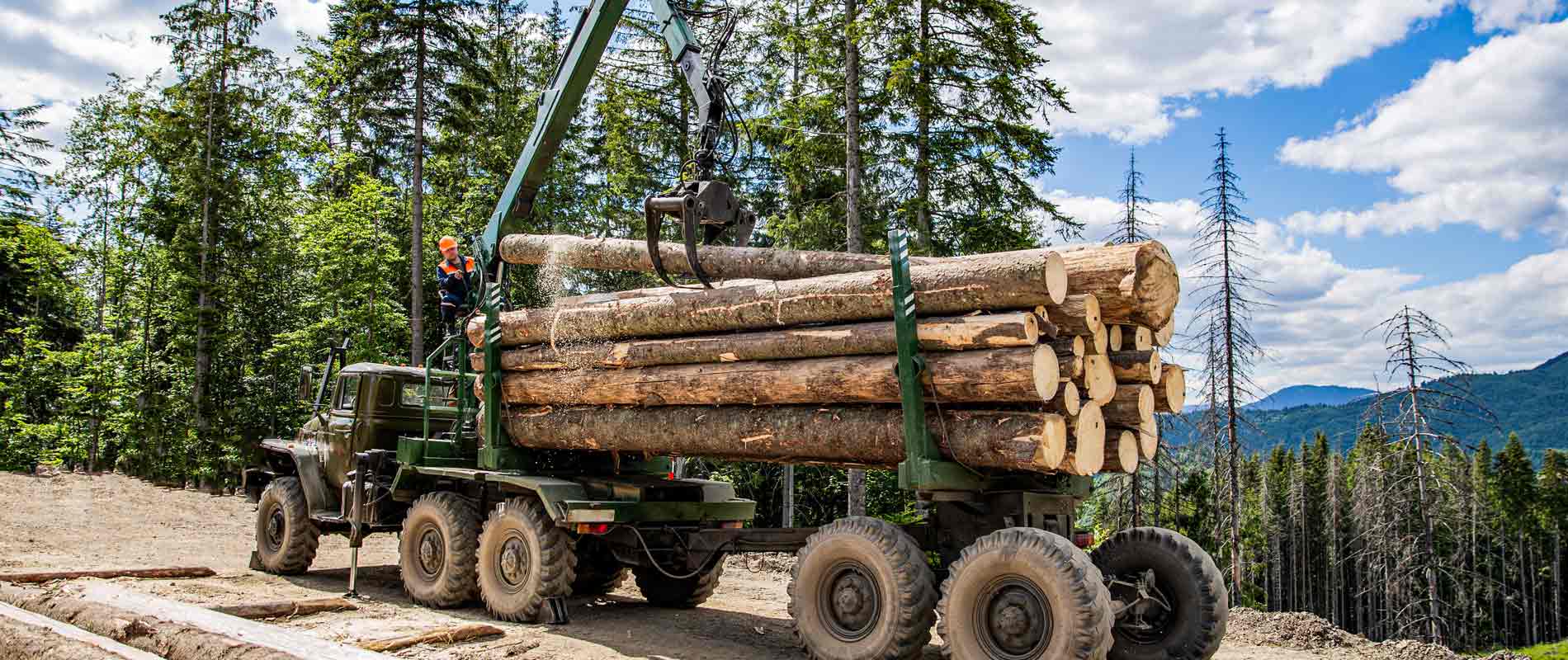2 min read
Boosting Mississippi's Forestry Industry: The Impact of New Federal Truck Weight Limits
Savannah Franklin
:
Mar 14, 2024 12:00:00 AM

The forestry industry of Mississippi is bracing itself for a game-changing shift, following President Biden's recent signing of the FY2024 Transportation, Housing and Urban Development, and Related Agencies (T-HUD) Appropriations Bill.
An Overview of the T-HUD Appropriations Bill and Its Implications
The T-HUD Appropriations Bill includes a provision that allows vehicles handling agricultural transport, such as timber-carrying trucks, to operate at weights up to the existing state limit of 88,000 pounds on an interstate highway within the borders of Mississippi.
This provision was successfully integrated into the bill by U.S. Senator Cindy Hyde-Smith. Before this change, sizeable agricultural vehicles were confined to operating only on state and county roads. The new legislation breaks down these limitations, providing a safer and more efficient environment for such transport.
Hyde-Smith pointed out that the provision is a significant step towards aligning state and federal laws. From a safety standpoint, it also yields the added benefit of moving traffic away from narrow, poorly lit, and often less-maintained roads. The senator emphasized that this change will not only boost public safety but also stimulate commercial activity in the state of Mississippi.
Key industry bodies, including the Mississippi Forestry Association, Mississippi Loggers Association, and Mississippi Farm Bureau Federation, have been tireless advocates for this shift in transport allowances. The organizations have praised Hyde-Smith's understanding of the needs and challenges faced by the forestry and agricultural industries, her commitment to the provision, and her overall support to these vital sectors.
The measure was approved as part of a comprehensive six-bill package. As the industry adapts to this significant change, the MFA promises to keep its members abreast of further details and implications.
This change in transportation allowances promises to bring about a marked improvement in the safety and productivity of Mississippi's forestry industry. Truly, a win-win for both the commercial sector and the public safety of the state.
What Makes This Significant?
Efficient transportation is the backbone of nearly every industry. For the forestry industry, this means facilitating the seamless movement of timber from rural forest lands to mills and markets.
The forestry sector, a key economic engine, relies heavily on a streamlined logistics chain to maintain competitiveness and sustainability. By allowing heavier loads on interstate highways, the new federal truck weight limits significantly reduce the number of trips needed to transport the same amount of timber.
This not only slashes fuel consumption and lowers carbon emissions but also diminishes wear and tear on state and county roads. Doing so will assuredly contribute to long-term infrastructure preservation. More importantly, the provision enables the forestry industry to expedite the delivery of raw materials, thereby enhancing operational efficiency and economic profitability.
Navigating Industry Evolution with Forestat Global
For industry professionals, staying on top of the latest developments like the new federal truck weight limits is not just important—it’s essential for ensuring competitive advantage, operational efficiency, and long-term growth. These changes can have profound implications on logistics, cost structures, and industry standards.
Staying informed empowers businesses to pivot quickly, seizing opportunities and averting potential risks. Forestat Global is a dedicated platform offering real-time insights into the forest products industry. By utilizing Forestat Global, professionals can tap into a wealth of knowledge, stay ahead of industry trends, and make informed decisions that align with their business goals and the ever-evolving landscape of the forest products sector.




![[Video] Molecules to Markets Episode 1: Chemical Markets Begin 2026 in a Supply-Driven, Margin-Sensitive Environment](https://www.resourcewise.com/hubfs/images-and-graphics/blog/chemicals/2026/weekly-video-series-molecules-to-markets/CHEM-Weekly-Video-Series-Molecules-to-Markets-Episode-1.png)
